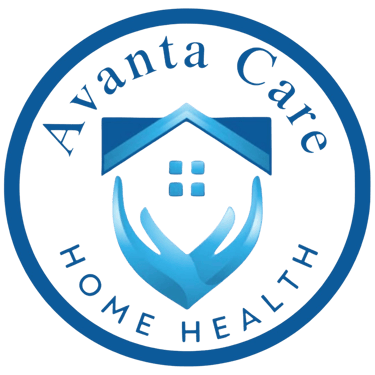Crisis-Proofing Homecare: Preparing for Emergencies in At-Home Health Services
Emergencies don’t wait. Whether it’s a power outage, flood, or medical crisis, Avanta Care’s homecare teams are trained to act fast and smart. We help families develop custom emergency plans, ensure medication continuity, and safeguard equipment. Homecare isn’t just daily support—it’s a lifeline, even when disaster strikes. We plan, so you’re never unprepared.
7/18/20254 min read


Understanding the Importance of Emergency Preparedness in Homecare
Emergency preparedness plays a crucial role in homecare services, ensuring that both caregivers and patients can effectively navigate unexpected situations. Various emergencies such as natural disasters—floods, hurricanes, and power outages—as well as medical crises, including heart attacks or sudden illness, can dramatically disrupt the delivery of at-home health services. Understanding the potential risks and having proactive measures in place can mitigate the adverse effects of such emergencies.
In a homecare setting, patients often have unique needs, particularly if they are elderly or managing chronic health conditions. They may require continuous medical support, which can be jeopardized during emergencies. For instance, a power outage can affect medical devices that rely on electricity, such as oxygen machines or insulin pumps. Without proper planning and preparation, the health of these individuals may be at serious risk. Additionally, caregivers themselves may face challenges in accessing homes for visits during adverse weather conditions or other emergencies, which can further exacerbate the situation for patients.
Moreover, home care teams must be equipped with not just knowledge, but also practical tools for emergency response. This includes having a well-developed emergency plan that encompasses communication strategies, evacuation routes, and community resources. Adequate training tailored to managing emergencies can also empower caregivers to respond confidently and efficiently. Thus, it is essential for homecare agencies to prioritize emergency preparedness through regular assessments and practice drills. By fostering a culture of readiness, caregivers can ensure a higher quality of care, providing patients with reassurance and stability during crises.
In essence, the unique challenges faced in homecare underscore the necessity for comprehensive emergency preparedness. Addressing these concerns will enhance patient outcomes and aid in the continuity of vital health services even in the face of adversity.
Creating Custom Emergency Plans for Homecare Clients
Developing individualized emergency plans for homecare clients is a critical aspect of crisis-proofing services. By tailoring these plans to each person's unique health circumstances and living environment, caregivers can considerably enhance their preparedness for emergencies. The first step in this process is identifying potential risks specific to each client. This can range from health-related issues, such as mobility limitations or reliance on medical equipment, to environmental hazards, including flooding or power outages. A comprehensive risk assessment should involve a detailed discussion with the client, their families, and healthcare professionals to uncover all pertinent factors.
Once potential risks are identified, establishing communication protocols is essential. This includes determining how information will flow between caregivers, family members, and emergency services. Clearly defined roles within the communication hierarchy can ensure that everyone knows who to contact in various emergency scenarios. This will facilitate prompt decisions, reduce miscommunication, and promote a more coordinated response. Furthermore, caregivers should provide families with essential contact lists that include emergency services, healthcare providers, and any other critical contacts that may be necessary during a crisis.
Coordination with healthcare providers and emergency services is another vital element in developing these personalized plans. Homecare providers should engage with the client's medical team to obtain relevant information regarding their condition, medication, and any possible complications. Establishing direct lines of communication with local emergency services can also streamline response efforts in the event of an incident. Involving family members throughout this process ensures a shared understanding of the emergency plan, fostering a sense of preparedness and teamwork. Taking these steps will help create a robust emergency response strategy that ensures the safety and well-being of homecare clients during unforeseen events.
Ensuring Medication Continuity During Crises
In the realm of at-home health services, ensuring medication continuity during crises is a pivotal concern for caregivers, healthcare providers, and families. Emergencies can disrupt the typical flow of medication access, necessitating well-thought-out strategies to safeguard patient health. One fundamental approach is maintaining an updated medication list for each client, which should include not only prescription medications but also over-the-counter drugs and supplements. This list serves as a critical resource in emergencies, ensuring that caregivers can quickly ascertain what medications are required and how they are to be administered.
Another key aspect is proactive medication management, which encompasses ensuring timely refills before emergencies arise. Homecare teams should work closely with pharmacists and healthcare providers to establish a plan for receiving medications in a timely manner. This includes utilizing automatic refill services when available and considering mail-order pharmacy options, which can provide a larger supply. In cases where a client may have specific needs or unique medications, preparing a contingency plan is essential. This could involve identifying nearby pharmacies that stock necessary medications or securing additional supplies in advance.
Education plays a crucial role in empowering patients and families to manage medications effectively during emergencies. Care teams should provide training on how to properly store medications, especially those that require refrigeration or have strict storage conditions. Furthermore, understanding potential drug interactions becomes increasingly important in crisis situations where alternative therapies might be employed. By fostering clear communication and comprehensive education, homecare teams can help ensure that clients maintain their medication regimens despite unexpected disruptions, significantly enhancing the overall effectiveness of at-home health services.
Safeguarding Equipment and Resources for Homecare Services
In the realm of homecare services, safeguarding essential medical equipment and resources is paramount for ensuring the continuity of care during emergencies. To effectively protect this vital equipment, implementing reliable storage solutions is crucial. Designated storage areas should be organized, accessible, and protected from environmental hazards. Proper shelving, cabinets, and cases can not only prevent physical damage but also facilitate easy monitoring of equipment efficacy.
Another critical aspect is preparing for power outages, which can significantly impact the functionality of medical devices. Investing in backup power options, such as uninterruptible power supplies (UPS) or generators, ensures that crucial equipment remains operational during unexpected disruptions. By performing an analysis of the power needs for each critical device, homecare providers can identify appropriate power solutions that can sustain operations in adverse scenarios.
Furthermore, optimal inventory management practices are vital for maintaining necessary supplies. Establishing a systematic inventory process allows for timely replacement of essential items, avoiding shortages that could compromise client care. Regularly assessing stock levels and expiring items helps maintain a ready supply of necessary resources, particularly medications and disposable items, which are critical in emergencies.
Attention must also be given to conducting regular maintenance checks for all equipment. Scheduling routine inspections can detect potential faults, ensuring that devices are functioning correctly and safely when needed. Training staff to understand equipment operation, maintenance, and emergency procedures is equally important. Empowered caregivers can take quick action against unforeseen equipment failures, allowing clients’ health needs to be met efficiently. Through these methods, homecare services can ensure continued support and quality care, regardless of external circumstances.


